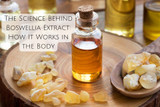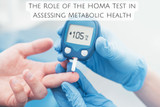Deodorant vs. Antiperspirant: What's the Difference?
Know the difference between a deodorant and an antiperspirant and see what suits you. Decide what makes you happy, a non-wet body or pleasing smell or both!
You are rushing to go to work, and you want a quick pick to keep you fresh all day.
Moving out without deodorant or antiperspirant can be a wrong decision. If you stink or you smell bad, you can ruin your first date or spoil your image in a job presentation.
You are wearing a beautiful t-shirt, and it has discolored due to the sweat marks.
No one wants to be in this situation, and you can easily avoid it by using an antiperspirant or deodorant. However, which one to choose depends upon your preference and need.
Read the guide to the end to know the difference and good reasons to pick one!
What is Deodorant?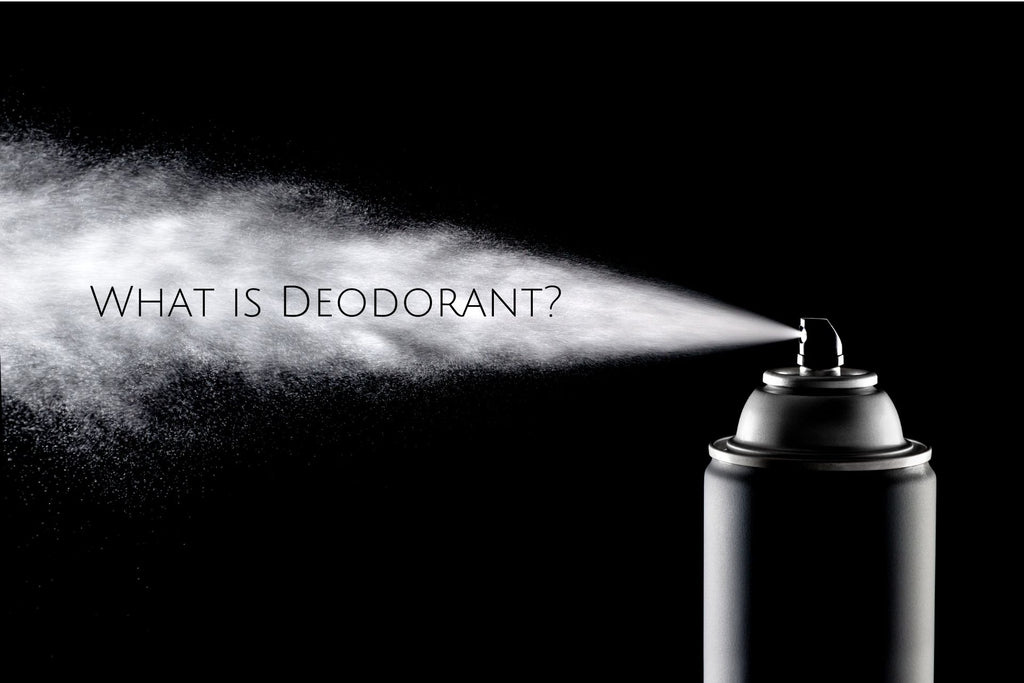
Deodorant is a cosmetic product that reduces body order by increasing skin pH. Deodorants are alcohol-based that eliminate armpit odor, and do not control perspiration.
In other words, it acts as a mask for body order.
The most common ingredients present in deodorant are,
- Dimethicone
- Propylene glycol
- Cetyl alcohol
- Hydrolysed corn starch
- Fragrances
- Cyclomethicone
Alcohol is the ingredient that you can find in any deodorant that acts as an antibacterial agent, while substances like charcoal, baking soda, coconut oil are natural fighters of bacteria.
How does deodorant work?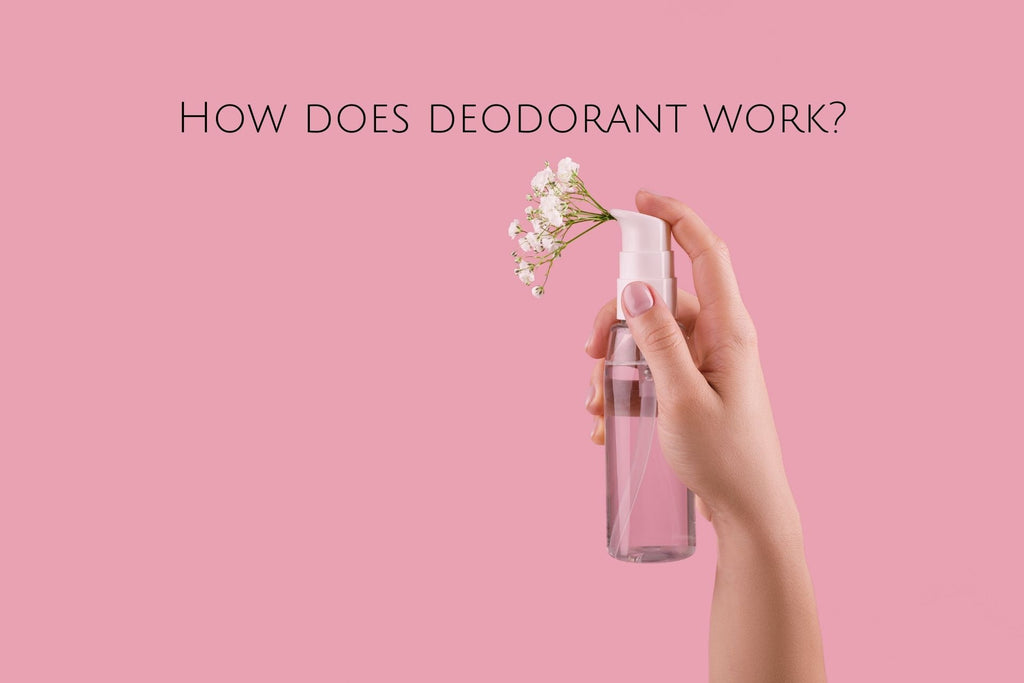
If you also think that sweat is the main culprit of body odor, you are not right. Sweat is colorless and odorless liquid. The microbes bond with sweat, break down proteins in sweat, and release bad smells. Depending on the body part where you are sweating, this odor can be more or less intense.
A deodorant is acidic, and it creates a thin layer of acidic film over the sweaty skin. Hence no more bacteria gets attracted to the skin. Therefore a deodorant helps you to prevent bad smells and keeps you fresh and confident.
How does antiperspirant work?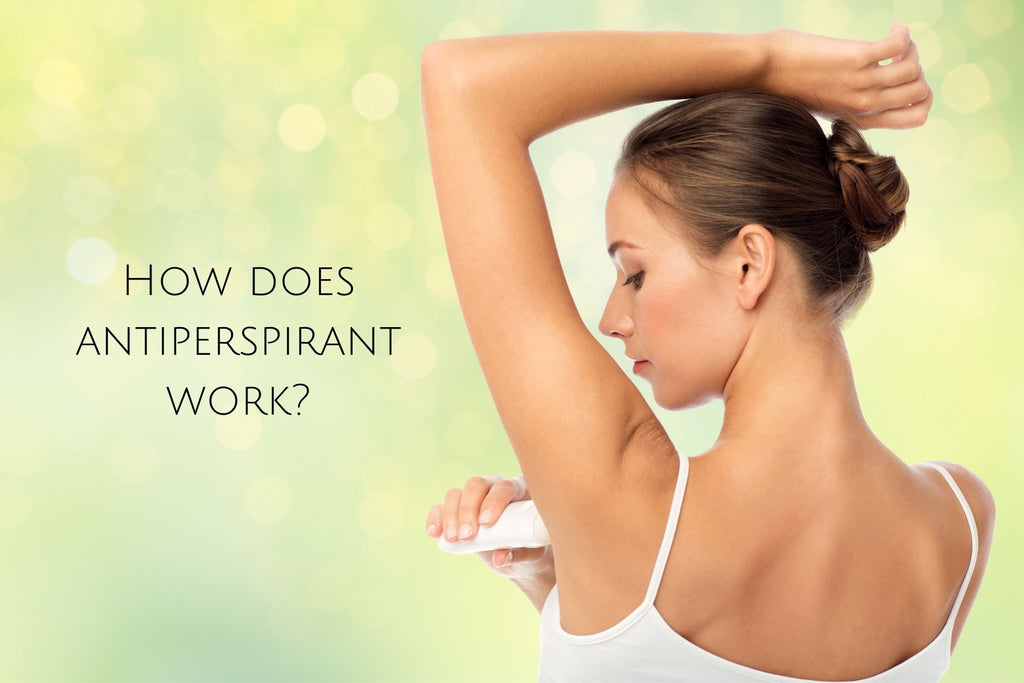
Antiperspirant is an aluminum-based product that combats sweating and perspiration. Aluminum creates a thin layer of gel around the applied body area that plugs and blocks sweat glands. Hence the least amount of sweat seeps through.
Therefore, after applying antiperspirant, you feel dry and fresh.
Remember that antiperspirant works best only when you apply it before sweating. The best time is to use it at night and let it dry properly.
Needless to mention, if you don’t let the antiperspirant formula dry properly, it will leave sweat stains on your clothes just near the underarm.
What is antiperspirant?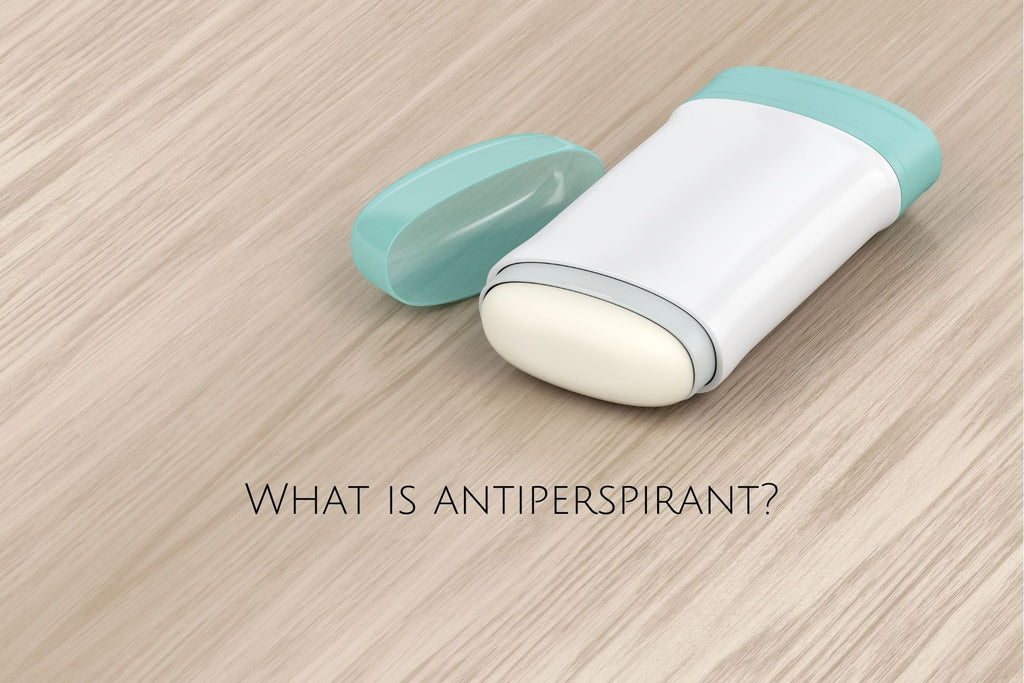
Antiperspirant is an aluminum salt-based product that helps in controlling sweat. You cannot get rid of sweat completely but experience less sweating and your body does not smell bad due to sweat. Including antiperspirants in the daily routine is the best way to stay dry and feel fresh the whole day.
These are the ingredients present in most of the antiperspirants,
- Aluminum chlorohydrate
- Aluminum zirconium trichlorohydrex glycine
- Aluminium hydrobromide
- Aluminum sulfate
- Sodium aluminum chloro hydroxy lactate
Besides, antiperspirant products can also contain natural ingredients like mineral salts, witch hazel hops, baking soda, and talc to reduce sweat and enhance the fragrance.
How to identify deodorant and antiperspirant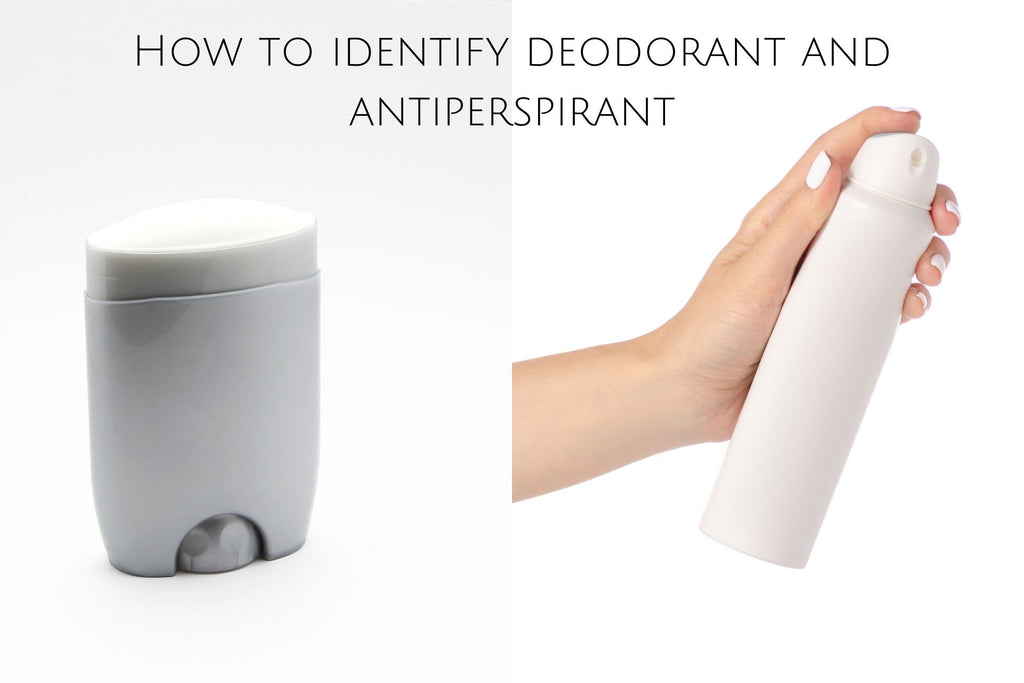
There is only one thumb rule to figure out between deodorants and antiperspirants.
Deodorant = alcohol.
Aluminium = antiperspirant.
If you have got this, you got them!
Additionally, a deodorant always smells good, but an antiperspirant may or may not.
Myths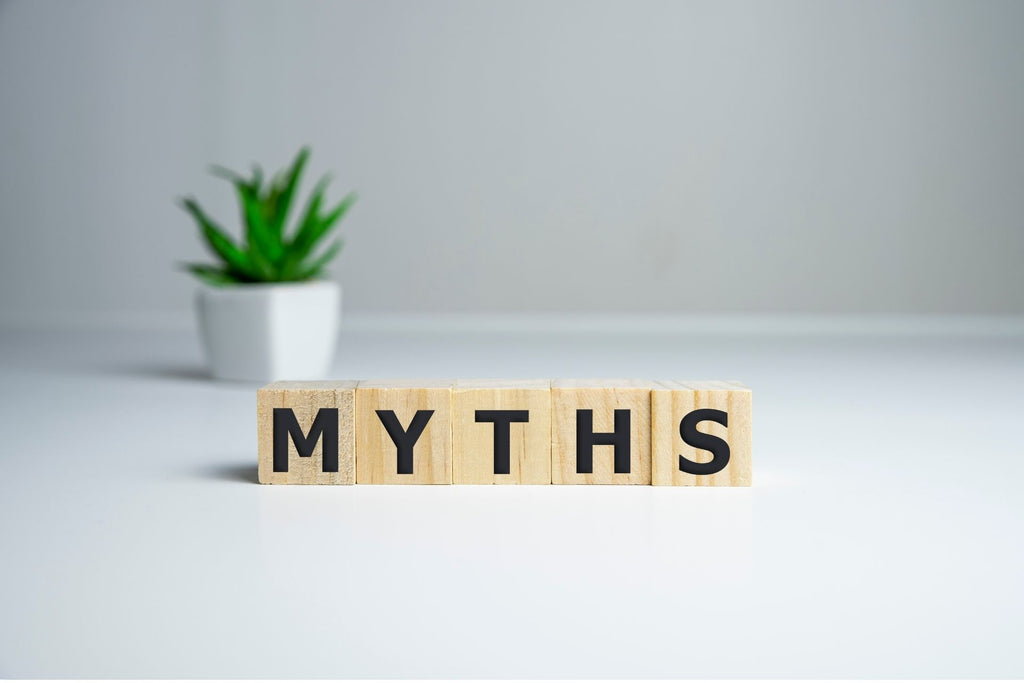
Few myths related to antiperspirants might have scared you. It's time to debunk the myths!
Five ingredients available in antiperspirant products are in controversy as they are blamed for being cancerogenic. It is not true at all!
Antiperspirants contain aluminum, but many researchers claim that Aluminium is not responsible for breast cancers or other cancers.
FDA mentions deodorant as a beauty product, while antiperspirant as a drug is it blocks sweat.
Who should not use it?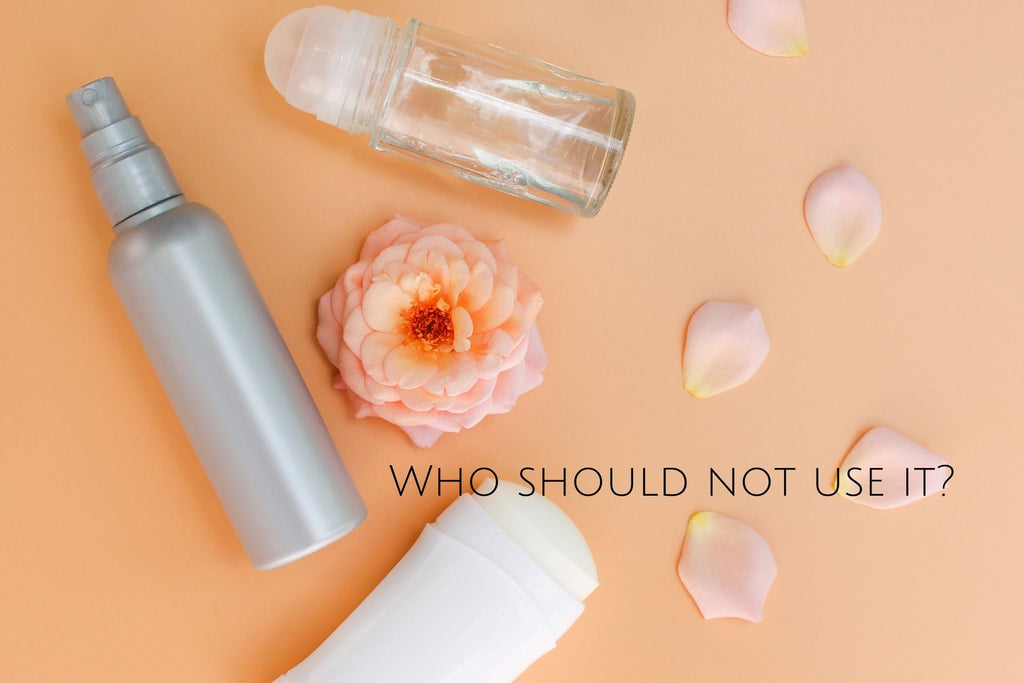
Anyone, who is not sensitive to alcohol or the sweet fragrance of the deodorant, can use deodorant.
On the other hand, antiperspirant is for struggling with more sweating than average. According to dermatologists, If sweating does not hamper your personal or professional life, you can avoid antiperspirants.
Those who have a kidney-related problem should consult a doctor before applying an antiperspirant because weak kidneys cannot clear out aluminum from the body.
If you have hyperhidrosis, which is the condition of excessive sweating in your palms, underarms, and different body parts, you need a prescribed antiperspirant.
Combined benefits
Those who suffer from unpleasant body smells and excessive sweating need the benefits of both deodorants and antiperspirants in one can. Yes, it is possible!
Now there are different products in the market that contain both deodorants and antiperspirant ingredients and function similarly. The ingredient label shows aluminum and antibacterials. Aluminum is an active ingredient of antiperspirant, while antibacterials indicate deodorant.
You can use both of the products separately as well. Nonetheless, it will complicate your routine as antiperspirant is meant to be used at night while deodorant is an early morning charm.
How to use a Deodorant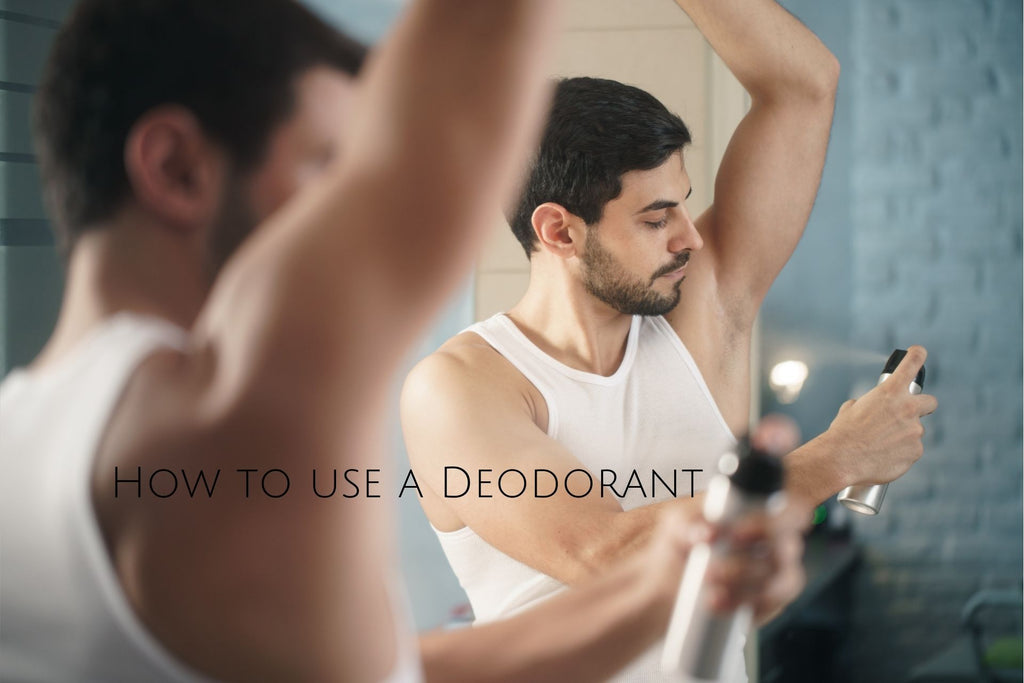
- After showering and drying yourself with a towel, the first thing should be to apply deodorant.
- Swipe deodorant on the armpits and slather the area properly.
- You can reapply deodorant during the day.
How to use an antiperspirant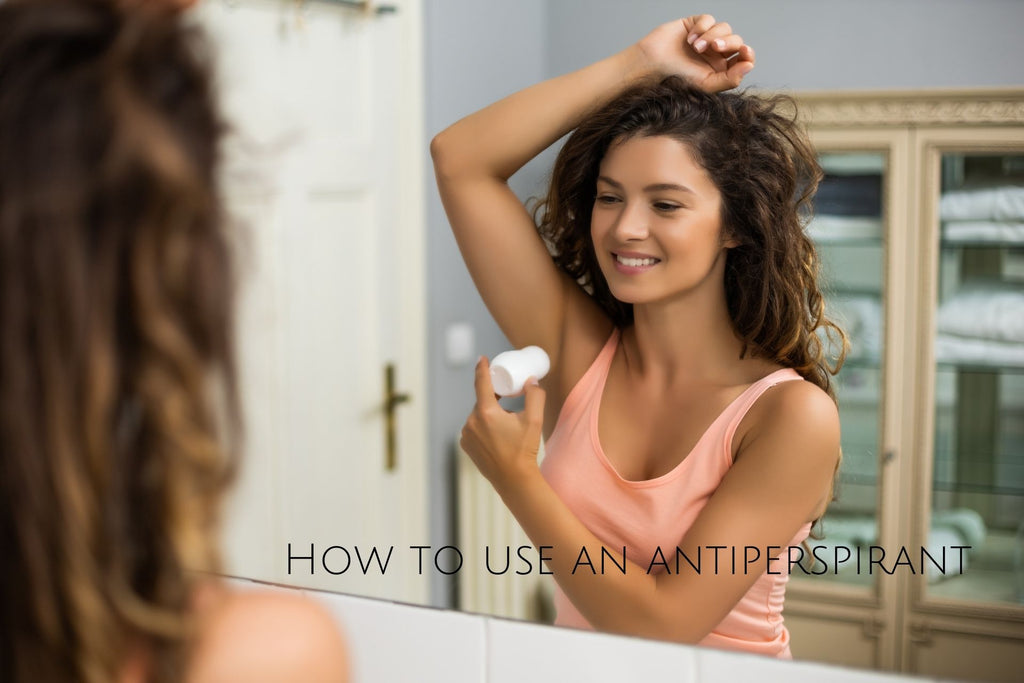
- At night take a shower before going to bed.
- Apply antiperspirant all over your armpits and tap gently.
- You should cover your arms adequately, but you can cover other areas as well.
- Let the formula dry properly.
- Most antiperspirants give 12 to 48 hours of sweat-free protection, so you don't need to reapply during the day unless you have sweat heavily.
Pro tip: Antiperspirants and deodorants are best to use on the underarms. But if you find other areas odorous, like chest area or groins, then try applying baby powder as it would be a natural and safe option to combat malodor.
How to choose a deodorant or an antiperspirant?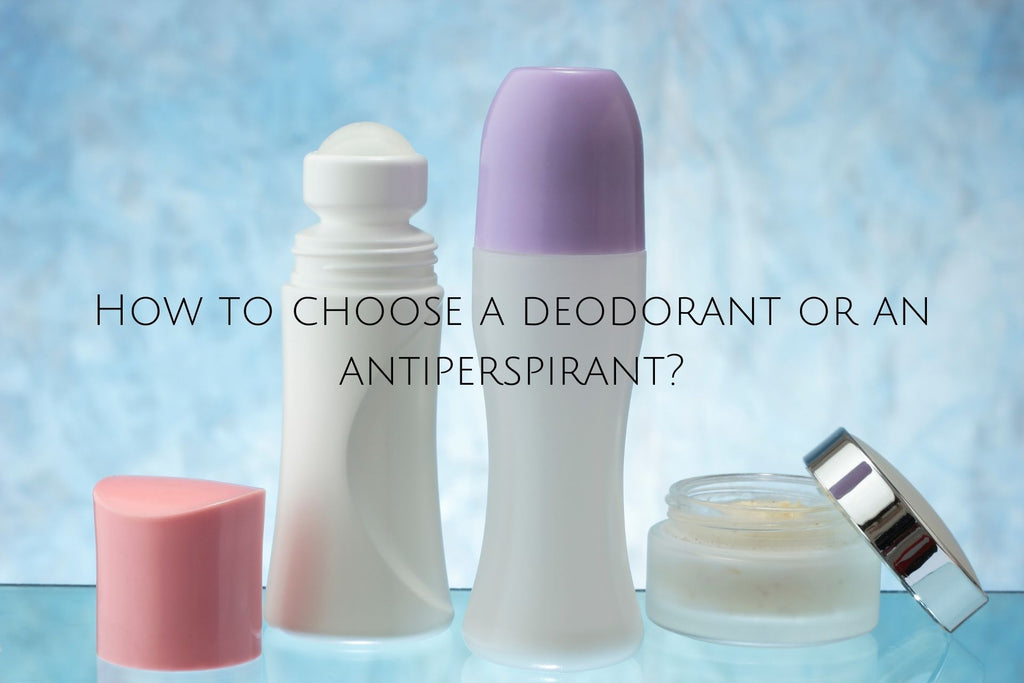
It's understandable how difficult it is to choose from tons of products.
Bhoot deodorant and antiperspirant come in different forms like sticks, aerosol spray gel, cream, solid stick, roll-on, and more. Depending on your ease of application and preferences, you can choose anyone.
In the case of deodorant, look for a pack that contains natural ingredients that keeps your skin fresh and healthy without looting the moisture. Ingredients like witch hazel, lavender, tea tree oil give a long-lasting and refreshing feel.
In the case of antiperspirant, look closely at the label. The percentage of aluminum content decides the strength of the product and also checks the suitability for you. There is a difference between clinical strength, extra strength, and prescription-strength antiperspirant.
For axillary hyperhidrosis or diaphoresis, you need a prescription-strength antiperspirant.
If you are someone who often stays out of home or travels frequently, keep a pocket deodorant with you that you can store in your purse or pocket.
Problems And the Solution
If you encounter problems like sweat constantly, wet marks, and nerve-wracking situations like dates, meetings, or interviews, an antiperspirant is the best solution for you.
If you struggle with problems like body water, sensitive skin, microbial irritation in armpits, a deodorant works best by providing a natural route and avoiding chemicals.
Let's make it shorter. If sweat is the culprit, choose antiperspirant and if body odor is the culprit, choose deodorant. Easy, isn't it?
What if not antiperspirant?
Deodorant and antiperspirant are entirely safe to use as long as you are not overdoing them. You should avoid overdoing antiperspirant, especially as it is more like a drug than a cosmetic product.
The safe option is to use deodorant twice a day and antiperspirants once a day.
However, if you want to avoid antiperspirants and go for a nature-friendly option, Thomson Tee would be the best alternative. It is an undershirt with patented hydro shield technology. Further, it absorbs sweat and evaporates it. Hence you don't feel sweaty. To add fragrance, you can pair it up with a deodorant.
Final touch
Both antiperspirants, as well as deodorants, work well to control body odor and sweating. If your goal is to smell nice only e then go for deodorants but if you want to stay dry too, pick up antiperspirant.
Depending on your budget and preference of brand, there are a lot to choose from.
Staying hygienic and maintaining a diet also help in reducing body odor. However, one swipe of detergent or antiperspirant will be an added touch.
If you want the advantages of both the products, then you can go for a combo pack of antiperspirant and deodorant.
Those who sweat intensely and find antiperspirant is not working then go for extra clinical strength labeled the products. They can also ask for a prescription antiperspirant from a doctor.
If you want to know more about body care stuff, stay tuned. The best is yet to come!
Recent Posts
-
The Science Behind Boswellia Extract: How It Works in the Body
Boswellia serrata, also known as frankincense, is a resin obtained from the Boswellia tree that has
-
The Role of Un-Natured Protein in Enhancing Detoxification
While the human body is well-equipped with a detoxification system—primarily managed by the liver, k
-
The Role of the HOMA Test in Assessing Metabolic Health
In today’s fast-paced world, where health conditions such as Type 2 diabetes, obesity, and metabolic


